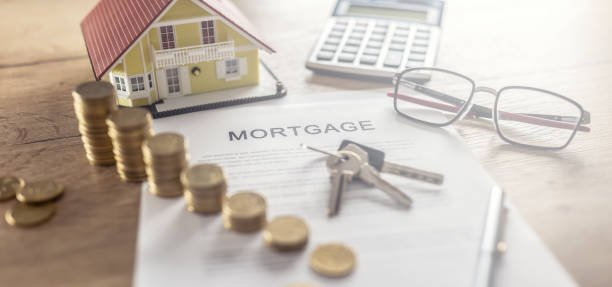
How To Choose A Mortgage Rate in Canada
When you’re buying a home, one of the most important (and confusing) decisions you’ll make is choosing your mortgage rate. It’s not just about going with the lowest number. There’s way more going on behind the scenes — from your credit score to your location to whether you plan to stay put or move in a few years.
In this guide, we’ll walk you through how mortgage rates work in Canada, what impacts them, and how to choose the right rate for your personal situation.
What Is a Mortgage Rate, Anyway?
Your mortgage rate is the interest you pay on the money you borrow to buy a home. It’s usually expressed as a percentage (like 4.70%). The higher the rate, the more you’ll pay in interest over time.
You can choose between:
- Fixed rate: Stays the same over your mortgage term (often 5 years)
- Variable rate: Changes with your lender’s prime rate, which is tied to the Bank of Canada’s policy rate
📉 Fixed vs Variable Mortgage Rates: Year-by-Year Comparison
This sample shows how 5-year fixed and variable rates might perform based on common Canadian market patterns, assuming a $500,000 mortgage with a 25-year amortization.
| Year | 🔒 Fixed Rate (5.24%) | 📈 Variable Rate (Starting 5.05%) |
|---|---|---|
| Year 1 | 5.24% | 5.05% |
| Year 2 | 5.24% | 5.30% |
| Year 3 | 5.24% | 5.55% |
| Year 4 | 5.24% | 5.40% |
| Year 5 | 5.24% | 5.10% |
📌 Insight: While variable rates can trend lower at the start, market shifts may lead to higher costs over time. Fixed rates offer predictability but may not always be the cheapest.
What Affects Your Mortgage Rate?
Your Location
Living in a big city? Rates are usually more competitive. In rural or remote areas, lenders might charge more due to resale risks.
Credit Score
A higher score (680+) means better rates. If your score is below 650, you might have to work with alternative lenders — who charge more.
Property Type
- Single-family homes usually get the best rates.
- Condos or multi-unit buildings might come with slightly higher rates due to extra risk.
Loan Term
A 5-year term is standard in Canada — and often comes with a lower rate. But a shorter 3-year term might give you flexibility if rates are high and expected to drop.
Down Payment
If your down payment is under 20%, you’ll need mortgage default insurance — but ironically, that can mean lower rates, since the loan is insured. A 20%+ down payment gives you more lender options, but usually slightly higher rates.
Amortization Period
Longer amortization (30 years vs 25) spreads your payments but usually means a higher rate. With less than 20% down, your amortization is capped at 25 years.
Purpose of the Property
Buying to live in? You’ll usually get a better rate than if it’s a rental or investment property.
How To Choose the Right Mortgage Rate for You
Step 1: Figure Out How Much You Can Afford
Use a mortgage affordability calculator or get pre-approved to know your real budget. Lenders look at your:
- Gross Debt Service (GDS) ratio – ideally under 32–39%
- Total Debt Service (TDS) ratio – ideally under 40–44%
Step 2: Understand Your Down Payment Options
- 5% down for homes under $500,000
- 5% on first $500K + 10% on remainder for homes under $1M
- 20% down for homes $1M+
More down = more flexibility, but don’t stress if you’re just meeting the minimum. Insured mortgages (under 20% down) often get the best rates.
Step 3: Decide How Long You’ll Stay
If you’re only planning to stay a couple of years, a 3-year mortgage might be better. It can save you from costly penalties if you break your mortgage early.
Step 4: Fixed or Variable?
Fixed offers stability. Variable could save you money if rates drop — but it comes with risk.
Think about your risk tolerance:
- Like predictable payments? Go fixed.
- Okay with some uncertainty? Variable might suit you.
💸 Interest Paid Over 5 Years: Fixed vs Variable on a $500K Mortgage
This side-by-side breakdown shows how much interest a borrower would pay over a 5-year term on a $500,000 mortgage amortized over 25 years. These examples use average Canadian rates for 2025:
| Mortgage Type | Interest Rate (2025 Avg) | Monthly Payment | Total Interest Paid (5 Years) |
|---|---|---|---|
| 🔒 5-Year Fixed | 5.24% | $2,989 | $115,480 |
| 📈 5-Year Variable (avg. rate path) | Starts at 4.90%, averages 4.60% | $2,867 (avg) | $108,140 |
📌 Tip: In this example, the variable mortgage saves about $7,340 in interest over 5 years — but keep in mind, rate hikes could change that outcome significantly.
Step 5: Compare Lenders — Not Just Rates
Some lenders offer low teaser rates with strings attached. Look at:
- Prepayment privileges
- Portability (can you take it with you if you move?)
- Penalties for breaking your term early
Step 6: Get Help from a Mortgage Broker
A broker can compare dozens of lenders for you — and explain the fine print. They’re paid by the lender, so it doesn’t cost you anything.
🔍 Compare Rates From Canada’s Top Lenders
Not sure which mortgage is right for you? Use our Mortgage Rate Comparison Tool to view real-time fixed, variable, and adjustable rate options from leading lenders—all in one place.
🔧 Try the Mortgage Rate Tool NowFrequently Asked Questions
What’s the best mortgage rate in Canada right now?
It depends on the term, lender, and your profile. Rates change daily — check a trusted rate comparison tool.
Should I go with a shorter or longer mortgage term?
Shorter terms (like 3 years) offer flexibility. Longer terms (5+ years) offer stability. It depends on your goals and market expectations.
Does my credit score really matter that much?
Yes. A higher score gets you access to better lenders and lower rates.
Final Thoughts: Choose with Confidence
Picking a mortgage rate can feel overwhelming, but it doesn’t have to be. Start with your personal goals, understand what lenders look for, and compare your options carefully. Don’t just chase the lowest rate — pick the rate that actually fits your life.
Not sure whether to go fixed or variable? This guide lays it out: Fixed vs. variable rate mortgages explained.
And if you’ve already chosen fixed, you might be wondering whether 3 or 5 years is best — here’s how to choose between 3-year and 5-year terms.
📌 Still Debating Fixed vs Variable?
The right mortgage rate depends on your income, risk comfort, and long-term plans. Whether you’re buying, renewing, or refinancing — our experts can help you choose the smartest rate for your situation. Talk to a Mortgage Advisor Today
Stuck with a Mortgage Decision?
Don’t stress — our team is here to help. Reach out for free, no-obligation guidance.
Contact the Experts



